Las Vegas has bustling streets, luxurious casinos, and crowded venues. It sees its fair share of accidents. Among these, slip and fall incidents are common and can lead to severe injuries. If you are a victim of such an accident, the path to recovery can be daunting. This is true not just physically but also financially and emotionally. That’s where a specialized Las Vegas slip & fall attorney comes in. They offer not just legal help but also a beacon of hope. They can help you get your life back on track.
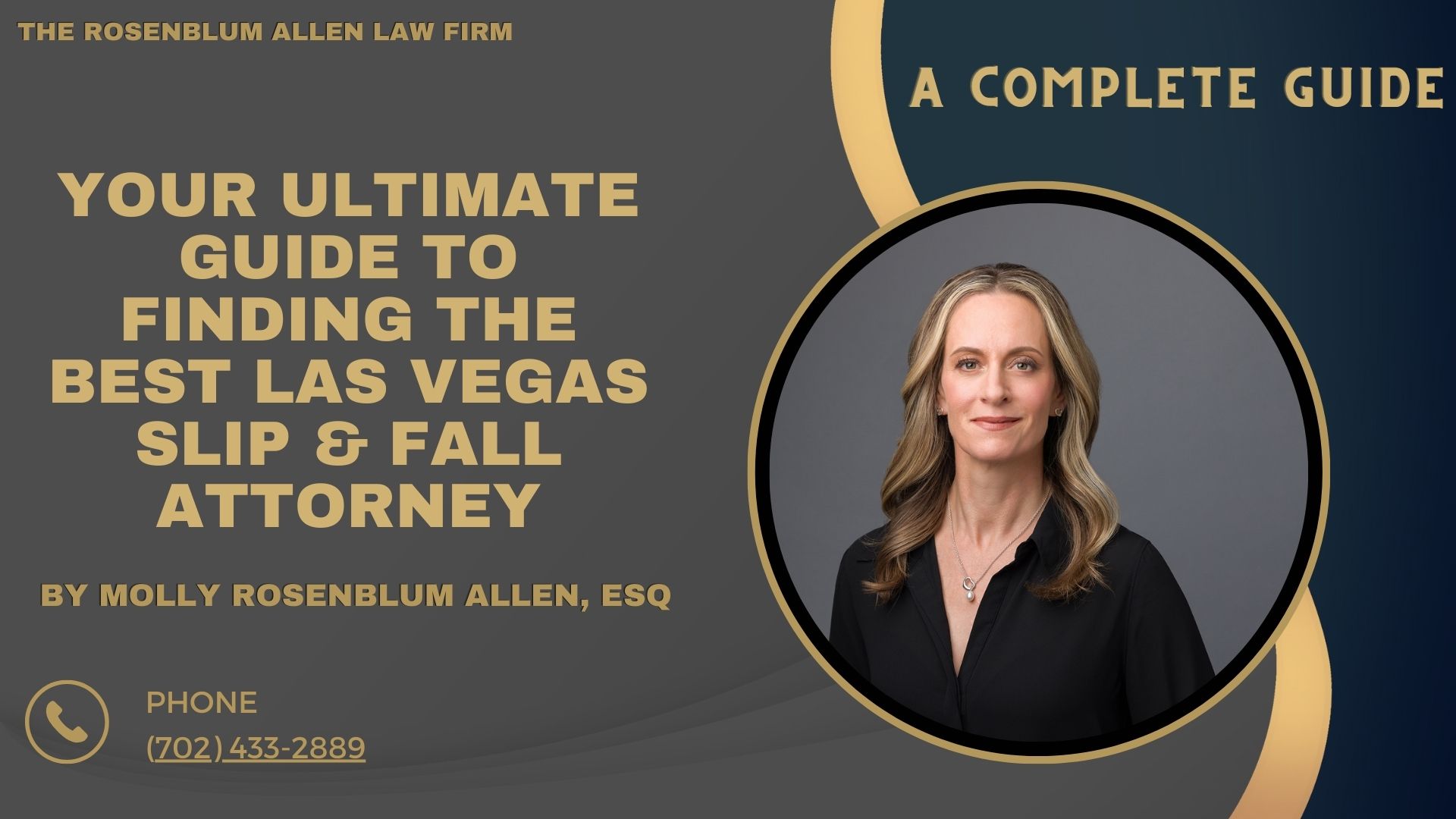
Understanding Slip & Fall Accidents
What Makes Up a Slip & Fall Accident?
Someone falls and gets hurt on someone else’s property in a slip-and-fall accident. They can happen anywhere. From the polished floors of a casino to the uneven pavement on a sidewalk.
The Legal Definition
These incidents are premises liability claims. The accident resulted from unsafe or defective conditions on someone’s property.
Common Causes in Las Vegas
-
Wet floors without proper signage
-
Uneven sidewalks
-
Poorly lit staircases
-
Obstacles in walkways
The Impact of Slip & Fall Accidents
The aftermath of a slip and fall can range from minor bruises to severe injuries that alter lives. The pain is not just physical. The strain of emotions and money can be too much.
Physical and Emotional Consequences
-
Broken bones
-
Head injuries
-
Chronic pain
-
Anxiety and depression
Financial Implications
-
Medical bills
-
Lost wages
-
Rehabilitation costs
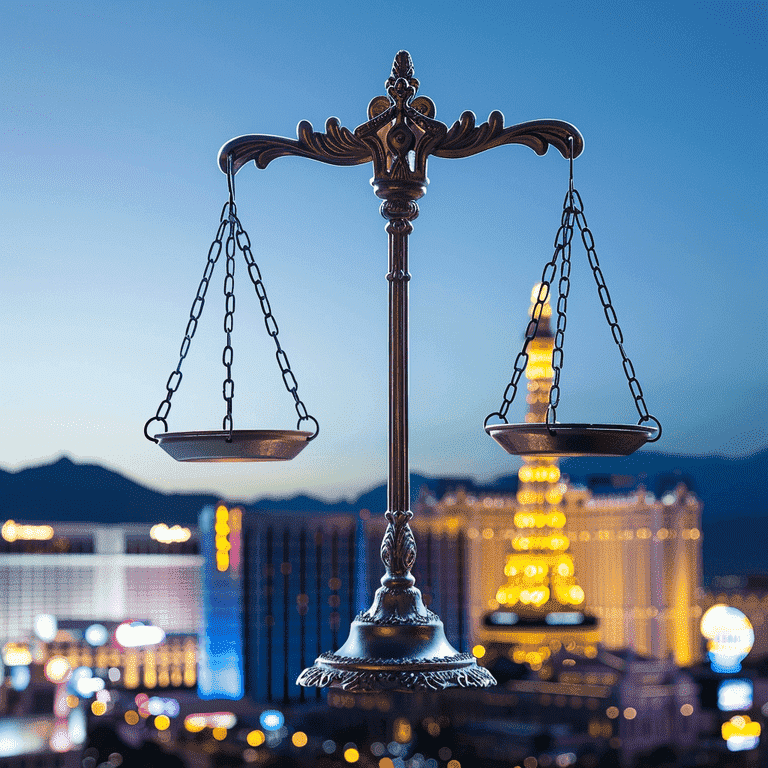
Legal Framework for Slip & Fall Claims in Nevada
Navigating slip & fall claims in Nevada involves understanding the state’s premises liability laws. You also need to know how to determine negligence.
Nevada Premises Liability Laws
These laws state the duties of property owners. They must ensure their premises are safe for visitors.
Duty of Care Explained
Owners owe different levels of care. The level depends on the visitor’s status: invitees, licensees, or trespassers.
Owner vs. Occupier Liability
Both property owners and occupiers may be responsible for accidents.
Proving Negligence in Slip & Fall Cases
To win a slip & fall case, you must prove that the property owner/occupier was negligent.
Evidence Collection
-
Photos of the accident scene
-
Accident reports
-
Medical records
Witness Statements
Eyewitness accounts can bolster your claim, providing details you might have missed.
Comparative Negligence in Nevada
Nevada’s comparative negligence law could reduce your compensation. This would happen if you’re found partially at fault for the accident.
This start to our guide is comprehensive. It aims to inform and comfort those affected by slip & fall accidents in Las Vegas. Knowing what causes an accident and its impacts sets a foundation. Knowing Nevada law is key. It helps in seeking justice and compensation for injuries.
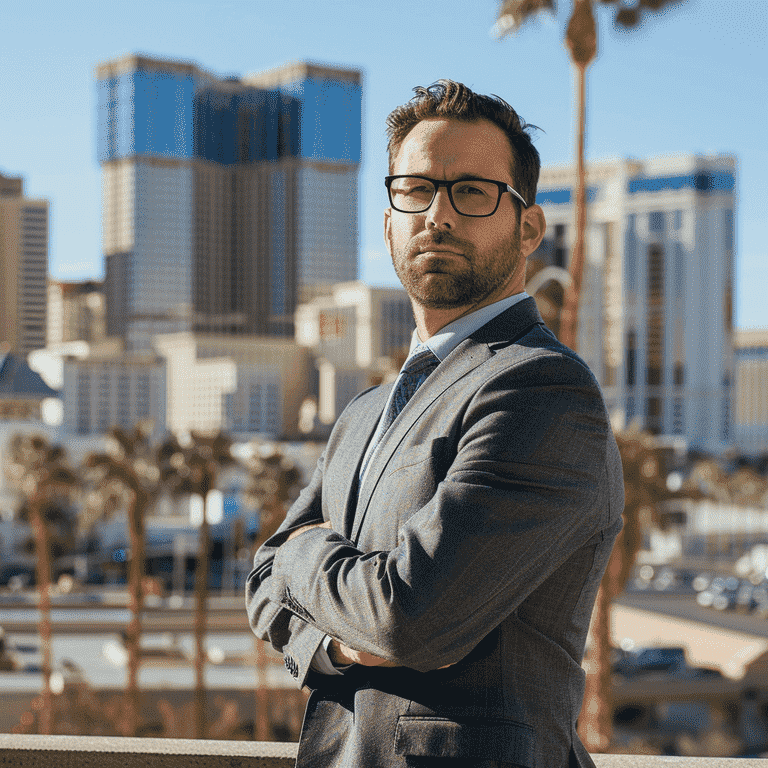
Choosing the Right Las Vegas Slip & Fall Attorney
Finding an attorney who is capable and a right fit for your case. Your choice can significantly impact the outcome of your claim.
Qualities of a Top Slip & Fall Attorney
When searching for your legal champion, consider these non-negotiable qualities:
Experience and Specialization
-
Years of Practice: More years often mean a wealth of experience.
-
Focus on Slip & Fall Cases: Specialization matters because it means the attorney understands the nuances of your case type.
Success Rate in Similar Cases
-
Case Outcomes: Look for a track record of winning or favorably settling slip & fall cases.
How to Find the Best Slip & Fall Attorney in Las Vegas
Navigating the sea of attorneys can feel overwhelming. Here’s how to start:
Online Reviews and Testimonials
-
Websites like Avvo and Martindale-Hubbell provide insights into an attorney’s reputation.
-
Client testimonials give a glimpse into what working with the attorney might be like.
Legal Directories and Professional Associations
-
The Nevada State Bar Association
-
The American Bar Association
These platforms can help you find attorneys recognized and respected in their field.
Questions to Ask a Potential Attorney
Before you commit, ensure they’re the right fit by asking:
About Their Experience
-
“How many slip & fall cases have you handled?”
-
“What were the outcomes of these cases?”
Approach to Case Management
-
“Who will be handling my case?”
-
“How often will I receive updates?”
Fee Structure and Payment Options
-
“Do you work on a contingency fee basis?”
-
“Are there any upfront costs?”
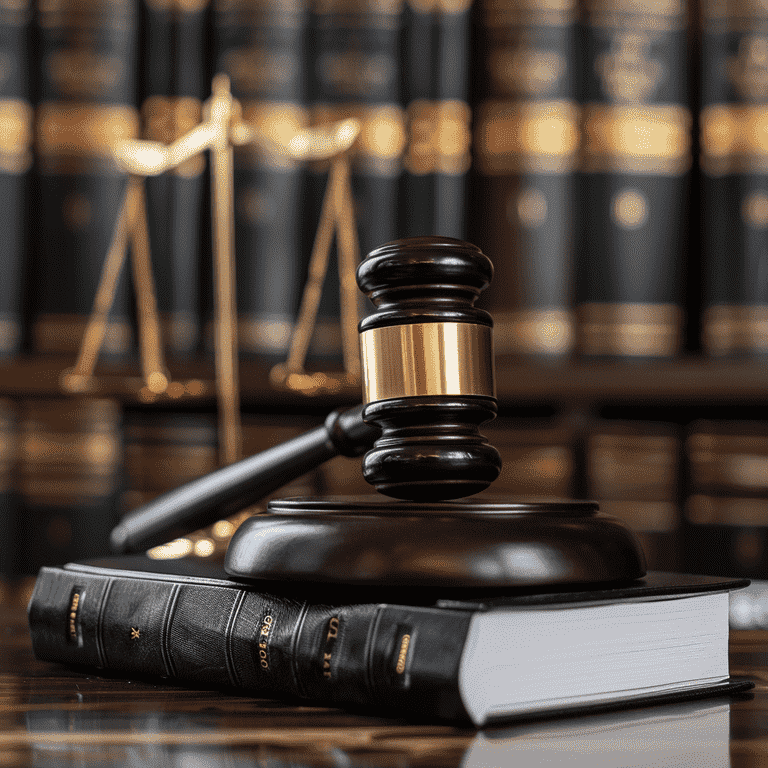
The Legal Process for Slip & Fall Claims
Understanding the steps can demystify the process. It can help you feel more in control.
Initial Consultation and Case Evaluation
This first meeting is crucial for setting the stage.
What to Bring to Your First Meeting
-
Accident reports
-
Medical records
-
Photographs of the scene and injuries
-
Correspondence with insurance companies
Discussing Your Case’s Viability
The attorney will assess the strengths and weaknesses of your claim.
Filing Your Slip & Fall Claim
Paperwork begins here.
Necessary Documentation
-
A detailed account of the incident
-
Evidence collected
-
Medical bills and records
Statute of Limitations in Nevada
You have two years from the accident date to file a claim. Don’t wait!
Settlement Negotiations
Most cases settle out of court, but it’s a process.
Strategy and Tactics
Your attorney will use the collected evidence to negotiate the best possible settlement.
What to Expect
Negotiations can take time and may involve several rounds of back-and-forth.
Going to Trial
If both parties cannot reach a settlement, the case may proceed to trial.
Preparing Your Case
This involves gathering more evidence, depositions, and expert testimonies.
Trial Phases and Possible Outcomes
-
Opening Statements
-
Presentation of Evidence
-
Closing Arguments
-
Verdict
Understanding each step of the process is key. It starts with choosing the right attorney. Then, it’s about navigating the complex legal process. This knowledge empowers you to move forward with your slip-and-fall claim. With knowledge and support, you can seek the justice and pay you deserve.
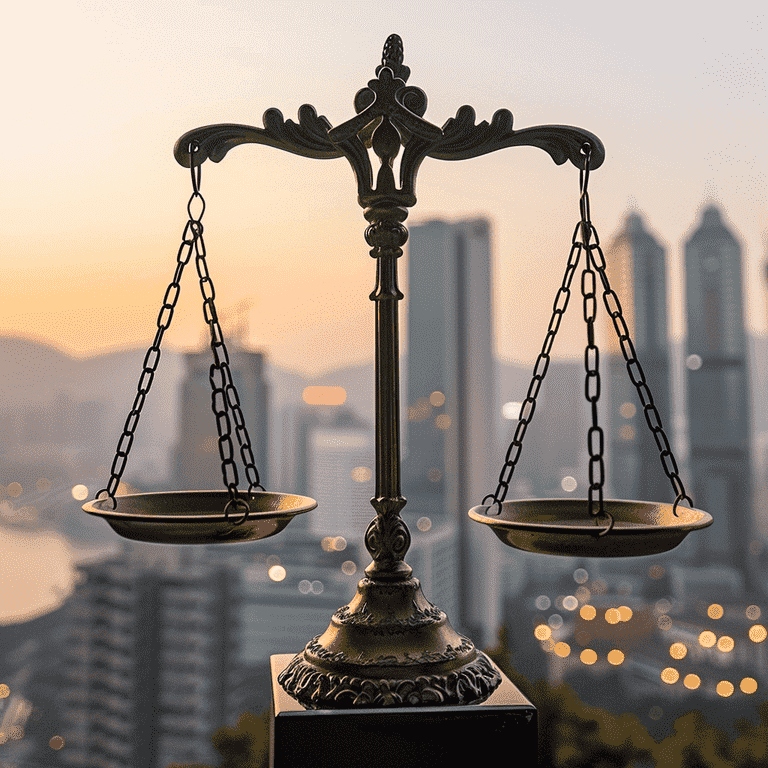
Maximizing Your Compensation
Getting the compensation you deserve is key. It’s for your recovery and financial stability. Here’s how to ensure you’re doing everything possible to maximize your claim.
Calculating Damages
Understanding what you’re entitled to is the first step toward maximizing your compensation.
Medical Expenses
-
Emergency care
-
Ongoing treatments
-
Rehabilitation costs
Keep meticulous records of all medical expenses related to your injury.
Lost Wages and Earning Capacity
-
Time off work
-
Reduced ability to work in the future
Document your lost earnings and any impact on your future earning capacity.
Enhancing Your Case’s Value
Strategic steps can strengthen your claim. They also raise the chance of a higher settlement.
Documenting Injuries and Recovery
-
Keep a detailed diary of your physical and emotional recovery.
-
Save all medical reports and photographic evidence of your injuries.
Expert Testimonies
-
Medical experts can confirm the extent of your injuries. They can also confirm the expected recovery process.
-
One could utilize vocational experts. They show how your injuries affect your ability to work.

Breaking It All Down
Dealing with a slip-and-fall accident can be a bumpy journey. It is full of expected and unexpected challenges. But, knowing the law is key. So is picking the right attorney. And, getting the most money matters. Remember, time is key. It’s key for getting medical help and finding a lawyer. Acting fast helps build a stronger case. It ensures you’re on the path to physical and financial recovery.

Frequently Asked Questions
What should I do immediately after a slip-and-fall accident in Las Vegas?
Immediately seek medical attention for your injuries. Document the scene by taking photos and getting contact info from witnesses. Report the accident to the property owner or manager. Avoid admitting fault.
How long does it take to resolve a slip & fall case?
The duration varies based on case complexity, willingness to settle, and court schedules. Some cases resolve in a few months, while others may take a year or more, especially if they go to trial.
Will my slip-and-fall case go to trial?
Parties usually settle out of court, but cases may go to trial if no fair settlement agreement is reached. Your attorney will prepare you for what to expect and plan the best path forward.
Can I pursue a claim if I was partly at fault for the accident?
Yes, Nevada follows a comparative negligence rule, allowing recovery of damages if your fault is not over 50%. Your compensation is reduced by your percentage of fault.
What compensation can I recover in a slip & fall lawsuit?
Compensation may include medical costs, lost wages, loss of earning ability, pain and suffering, and emotional distress. An experienced attorney can help you understand the full compensation available.
Do I need a lawyer for a slip-and-fall claim?
While not mandatory, legal expertise is crucial. An attorney helps collect evidence and negotiates with insurance companies for fair compensation.
How are slip & fall settlements calculated?
Settlements consider injury severity, impact on life, medical expenses, lost wages, and other damages. Each case is unique, and your attorney ensures all relevant damages are considered.
What if the property owner claims ignorance of the dangerous condition?
Property owners are responsible for maintaining safe premises. Ignorance does not absolve them of liability if they should have known about and fixed the hazard.
How can I prove the property owner was negligent?
Proving negligence involves demonstrating that the owner knew or should have known about the hazard but failed to address it. Evidence includes photos, maintenance records, incident reports, and witness statements.
What happens if I miss the deadline to file a slip & fall lawsuit?
Missing the deadline forfeits your right to seek compensation. The deadline is two years from the accident. Contact an attorney promptly to ensure timely filing of your claim.

Glossary
Comparative Negligence: A legal doctrine that reduces the damages a plaintiff can recover in a negligence-based claim, based upon the degree to which the plaintiff’s negligence contributed to cause the injury.
Contingency Fee Basis: A payment structure where an attorney agrees to accept a fixed percentage of the recovery, which may be obtained via settlement, verdict, or judgment as their fee. The attorney does not receive a payment if the client does not win the case.
Duty of Care: A legal obligation imposed on an individual requiring adherence to a standard of reasonable care while performing any acts that could foreseeably harm others.
Evidence Collection: The process of gathering physical proof and testimonies to support the validity of a claim in a court of law. This can include photographs, videos, witness statements, and material objects related to the incident.
Invitees: Individuals who are invited onto a property for the property owner’s benefit, such as customers in a store. Property owners owe the highest duty of care to invitees.
Licensees: Individuals who enter a property for their purpose or as social guests, with the property owner’s consent. Property owners owe licensees a duty to warn of dangerous conditions.
Loss of Earning Capacity: A form of damages that refers to the loss of the ability to earn income in the future due to injuries sustained from an accident.
Medical Bills: Expenses incurred for medical treatment related to injuries from an accident. These can include hospital stays, doctor visits, physical therapy, and other medical expenses.
Negligence: A failure to behave with the care that someone of ordinary prudence would have exercised under the same circumstances. It involves harm caused by carelessness, not intentional harm.
Occupier Liability: The legal responsibility of those who occupy the property (with or without ownership) to ensure that the premises are safe for visitors, customers, and trespassers under certain conditions.
Pain and Suffering: A legal term that refers to the physical and emotional stress caused by an injury, including the pain and discomfort experienced and the impact on one’s daily activities and enjoyment of life.
Personal Injury Lawyer: An attorney who provides legal representation to individuals who claim to have been injured, physically or psychologically, due to the negligence of another person, company, government agency, or any entity.
Premises Liability: A legal concept that holds property owners and residents liable for accidents and injuries on their property due to unsafe conditions or negligence.
Settlement Negotiations: The process by which the parties in a dispute attempt to reach a mutually agreeable resolution, often involving financial compensation, without going to trial.
Slip & Fall Attorney: A personal injury lawyer specializing in cases where individuals are injured by slipping, tripping, or falling due to unsafe conditions on someone else’s property.
Statute of Limitations: The maximum period after an event within which legal proceedings may be initiated. In the context of personal injury claims, it refers to the deadline for filing a lawsuit.
Trespassers: Individuals who enter someone’s property without any right, invitation, or interest. Property owners have a limited duty to ensure the safety of trespassers.
Verdict: The formal decision or finding made by a jury, reported to the court, on matters or questions submitted to them during the trial.

Additional Resources for You
To further assist our readers in navigating through their time of need, our lead attorney, Molly Rosenblum Allen, Esq., has created a comprehensive suite of resources. These resources are designed to provide in-depth assistance and guidance across a range of personal injury scenarios that you might be facing:
For those dealing with the aftermath of an injury and seeking knowledgeable representation, explore our Las Vegas Personal Injury Attorney resource for effective legal advice and support.
If you’ve been involved in a vehicle accident, our Las Vegas Car Accident Attorney page offers essential information to help you understand your rights and the next steps to take.
Motorcycle accidents can have devastating consequences. Our Motorcycle Accident Lawyer Las Vegas resource is tailored to address the unique challenges faced by motorcyclists on the road.
In the unfortunate event of a loved one’s wrongful death, gain support and legal insight through our Wrongful Death Lawyer Las Vegas page to navigate this difficult time with compassion and expertise.
For incidents involving larger vehicles, our Truck Accident Attorney Las Vegas resource provides specialized guidance for dealing with the complexities of truck accidents.
Drunk driving accidents are both traumatic and complex. Our Las Vegas Drunk Driving Accident Attorney page offers critical advice for those affected by such incidents.
Molly Rosenblum Allen, Esq., and the team at The Rosenblum Allen Law Firm are dedicated to offering not just legal representation but a comprehensive support system for Las Vegas residents during their most challenging times. Each of these resources is designed with your needs in mind, aiming to provide clarity, support, and the highest level of legal expertise.

Outside Resources for You
American Bar Association (ABA) – A comprehensive resource for legal information, including public resources on different areas of law. Visit ABA
National Highway Traffic Safety Administration (NHTSA) – Offers extensive data and resources on road safety, including aspects related to car and motorcycle accidents. Visit NHTSA
Occupational Safety and Health Administration (OSHA) – Provides resources and information on workplace safety, which can be relevant for personal injury cases related to work accidents. Visit OSHA
Centers for Disease Control and Prevention (CDC) – Injury Prevention & Control – Offers insights and data on injuries, including prevention strategies that might be pertinent to understanding the broader context of personal injury. Visit CDC Injury Prevention & Control
United States Courts – A gateway to understanding the federal judiciary system, useful for those interested in the procedural aspects of filing a lawsuit at the federal level. Visit United States Courts
- Consumer Product Safety Commission (CPSC) – A resource for information on product recalls and safety tips, which can be crucial for cases involving injuries caused by defective products. Visit CPSC

A Special Message from Our Lead Attorney, Molly Rosenblum Allen, Esq

Dear Reader,
Thank you for exploring the resources we’ve compiled to help you. You may be going through a tough time. We aim to give you legal help and ensure you have the info you need. This info empowers you to decide.
If you need more help or are ready to take the next steps, please reach out. My team and I at The Rosenblum Allen Law Firm are here to offer our expertise and support.
To get the ball rolling on your situation, please call us at (702) 433-2889. We’re ready to listen. We’ll work hard to achieve the best outcome for you.
Warmest regards,
Molly Rosenblum Allen, Esq.



